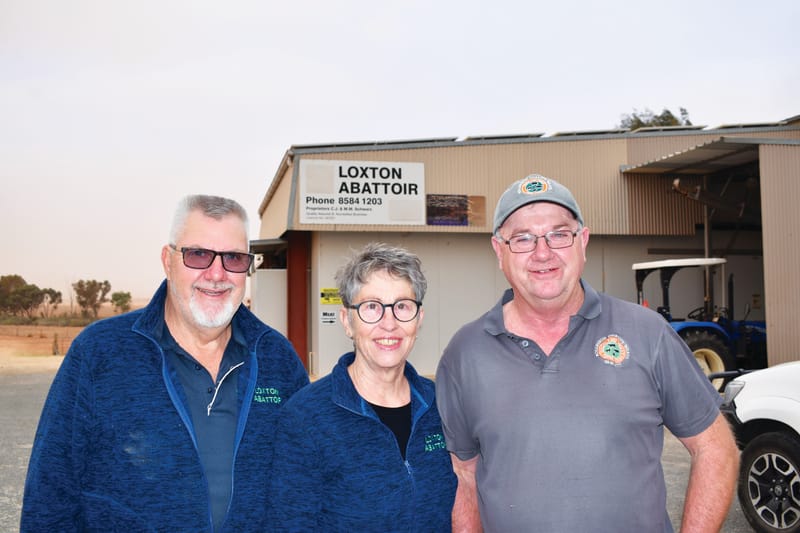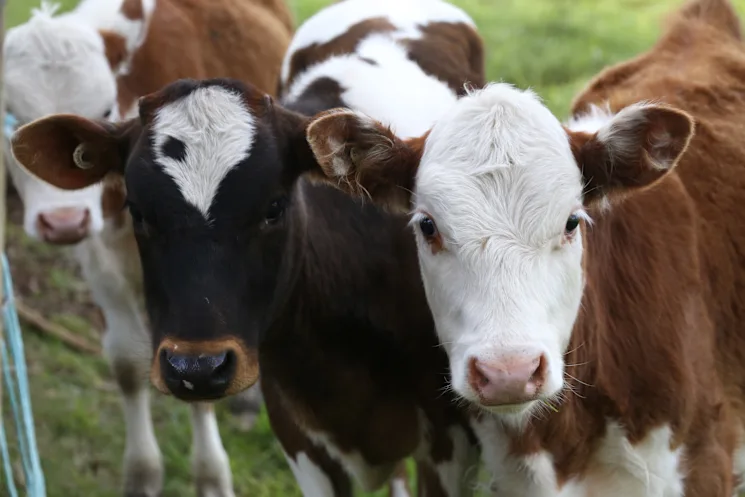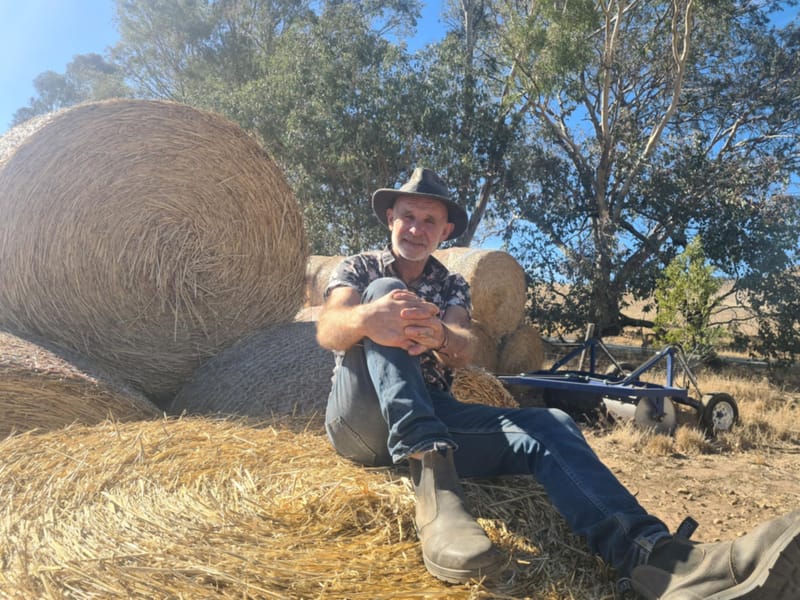Goats abound at Lameroo
ABOUT 10 years ago Lameroo’s Amy Eatts fell in love with goats. Now, seven years after moving to Lameroo with husband John and her three boys to a 90-acre farm Amy has a collection of 20 Boer goats, plus about 80 miniature and pygmy breeds. “...

ABOUT 10 years ago Lameroo’s Amy Eatts fell in love with goats.
Now, seven years after moving to Lameroo with husband John and her three boys to a 90-acre farm Amy has a collection of 20 Boer goats, plus about 80 miniature and pygmy breeds.
“A friend of mine had some miniature goats which is how it all started,” Amy said.
“Initially Australian miniatures were the goat breed that was being developed.
“The pygmies are actually imported from South Africa and America, and they are a really small stocky miniature goat as well.
“I have some very favourite animals that are somewhat vocal and a bit annoying, but I love them dearly.
Some of the ones that I have saved from birth, raised since they were tiny, and had a few struggles along the way, are my absolute favourites.”
Amy has shown her goats to considerable success, including at the Royal Adelaide Show, sold goats to other breeders and hobby farmers for between $300 and $2000, and – in the case of the Boer goats – sold for meat.
“They are similar to sheep, they need vaccinations, drenching, and need their hooves trimmed regularly which is probably one of the main (care duties),” she said.
“Other than that, they are pretty hardy.
“I do find they do better here than at my previous property in Mount Compass.
“Mount Compass is very wet underfoot… The grass is always green and lush, (so) they do better on the drier ground, the drier grasses, and they thrive in the heat which is really good.
“Fences are important. Because they are small and smart the fences have to be good.”
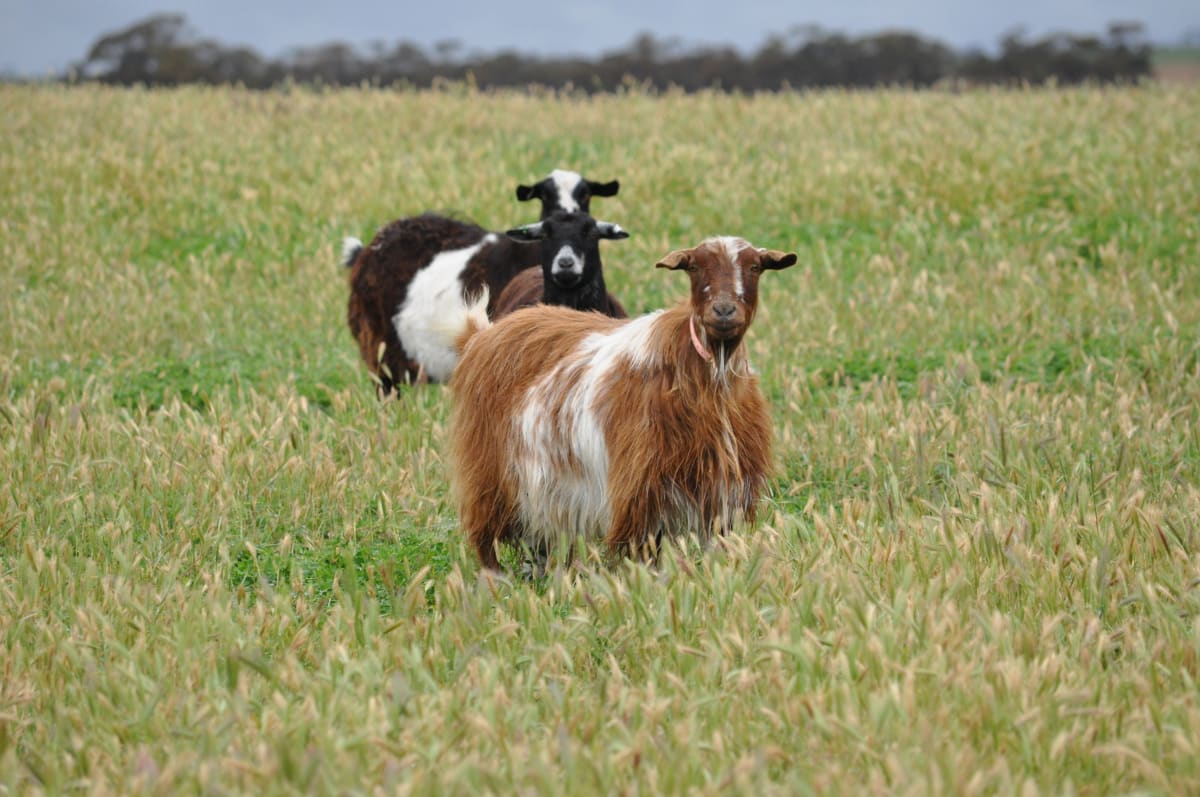
Amy is also Lameroo Regional Community School’s agriculture teacher, juggling her education career with her growing menagerie of animals that now also includes two new miniature donkeys, and a thriving border collie breeding program.
“The students are coming around to my love of goats, because they ask me to bring in the babies all the time,” she said.
“If I have orphans that need a bit more care, need a middle feed, I bring them into school.
The students ask me nearly daily when they know it is kidding season, ‘Have you got any goats here?’.”
The kidding season is normally in spring, but Amy sometimes adds an autumn season.
“Each breed is slightly different, but we do look for the conformation of the goat, which is how well they are put together,” she said.
“The does need to have two nice teats and udders, and the bucks have to have correct manhood.
“We look at their testicles to make sure they are not split, and are properly formed.
“We do the same as other stud cattle and sheep breeders do. We just want healthy, well put- together animals and if they have a splash of colour or something else that is a bonus.”
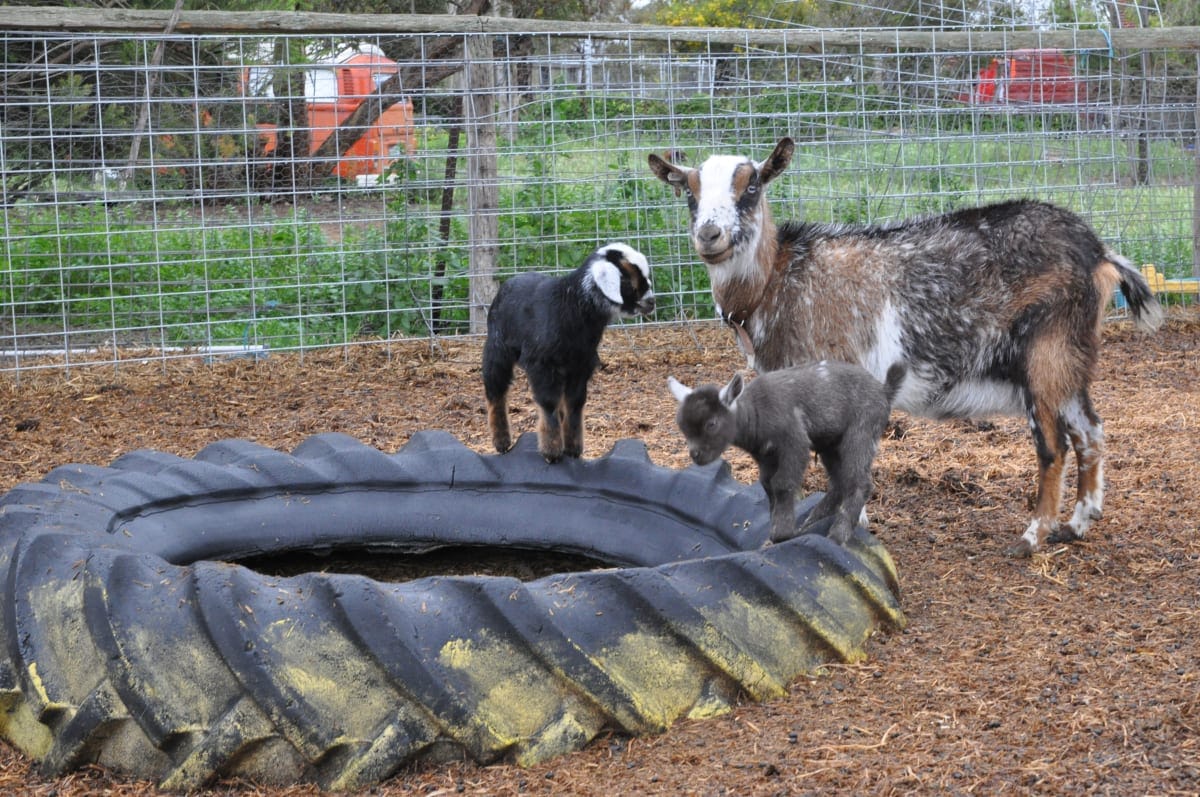
The goats are most popular among hobby farmers or as pets.
“You can milk them, and use them like a mini dairy goat, if you want to go down that path,” Amy said.
“A hobby farmer could breed them, milk them and make cheeses, or if you have got the heavier type you could breed them and eat them if you want to.
“(However), I don’t think that is what many people do.
I think they are more fun pets – and they are excellent pets.
“They eat weeds, they prefer weeds over lush feed… and they like caltrop.
“My paddock out there when we moved in was horehound and caltrop and tumble weeds, and it is now gone.
“It is not good for them to eat in massive quantities, but if it is mixed in with other things, they eliminate it.”
So far the goats, dogs and donkeys have got along harmoniously.
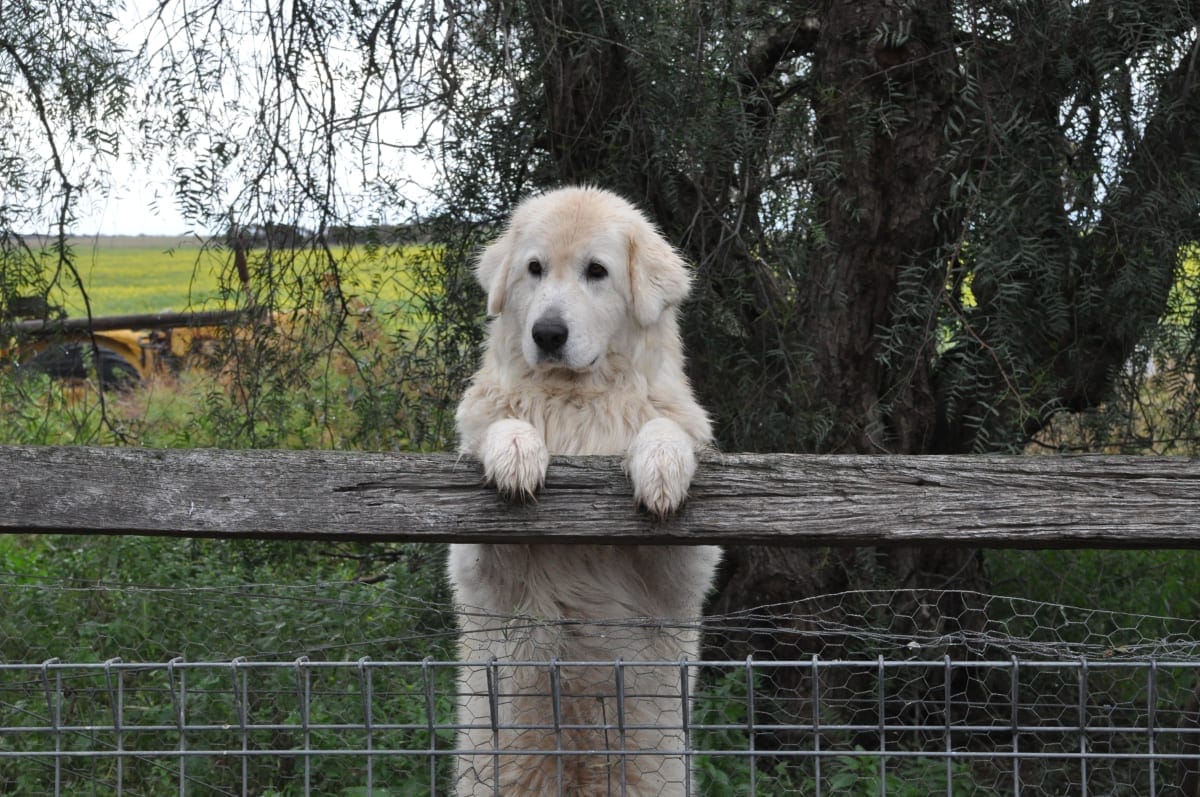
“The dogs are very handy,” Amy said.
“They are a herding breed so if I need to move the goats around they help out there, and if I have orphaned kids the dogs lick their lips, and clean up the kids’ faces.
“They are quite sweet and they are very good with them.”
Amy is happy with her lot, and her slightly bigger-than-normal hobby farm.
“I am loving it right now,” she said.
‘(I would like to) just keep breeding and there will be more and more demand from other breeders to get my lines, and for the pet market as well.
“I have a few being shipped off to New South Wales next week, so lots of interest in the eastern states.”
For PIRSA and livestock laws, goat owners need to have a PIC (Property Identification Code) number, while council permission is needed for a normal suburban backyard.


